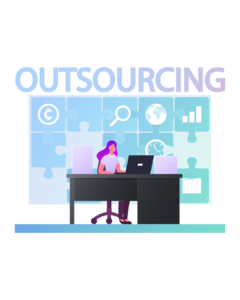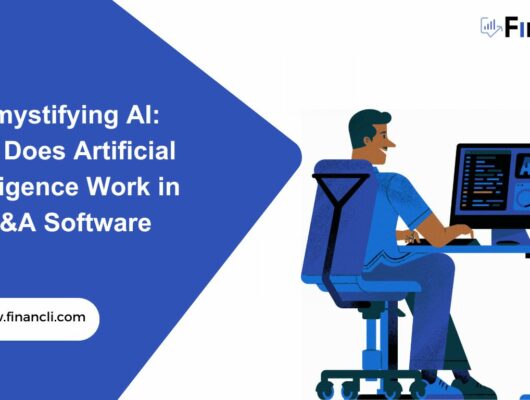A company’s operating expense is the cost it incurs due to its regular operations. Rent, equipment, inventory, marketing, payroll, insurance, step costs, and funds set aside for research and development are examples of operating expenses, also known as OPEX. A corporation’s costs while performing its routine operational activities are known as operational expenses. The daily tasks that company must carry out to operate a business and generate revenue are known as functional operations. Expenses related to project investment and financing are different from operational expenses.
What is Included in Operation Expense?
The operating activities are primarily responsible for the company’s commercial operations. The primary operational activity of a manufacturing company, for instance, is producing the product using raw materials, as opposed to the natural process of an operating company that deals in goods from suppliers and sells them to end users.
It’s critical to remember how drastically different sectors’ operational practices are. A company activity may categorize as functional in one industry and finance or investment in another. For instance, buying a building is typically considered a business investment activity. However, because the purchased property is intended for resale, real estate companies use it for operational purposes.
Operating costs are a necessity for the majority of organizations. Some businesses successfully cut operational costs to gain a competitive edge and increase profitability. Cutting operational costs, however, could endanger operations’ integrity and quality. Even though it may be difficult, finding the right balance can be very rewarding.
An income statement tracks a company’s income and expenses over a predetermined period to indicate its profitability. On income statements, payments are typically divided into six categories: income taxes, general and administrative fees, depreciation and amortization, other operating costs, and the cost of goods sold.
When calculating operating income using an income statement, interest costs and income taxes are omitted, but all these expenses are known as operational expenses.
When analyzing operational expenses, managers classify them as fixed or variable. In this way, management can better understand the nature of the spending. Variable costs change with the number of goods or services a company produces, whereas fixed costs are constant regardless of output level.
Operating Expense’s Importance
Operational costs are significant because they affect how a company manages its prices and stock effectively. It emphasizes how much money a company must spend to make money, which is its primary goal.
A company may be less effective at generating sales if it has higher OPEX as a percentage of sales than its competitors.
Depreciation in OPEX
Firms cannot operate without fixed assets, which are subject to depreciation.

Assets are consumed by the minute each time they are used, as opposed to depreciation charges, which are only recorded monthly, quarterly, or annually.
Depreciation is therefore categorized as an operational expense even though the company does not pay for it when recorded. Nevertheless, it is a cost directly related to the business’s day-to-day operations.
What is Non-Operating Expense?
An expense incurred by a business unrelated to the company’s core operations is referred to as a “non-operating expenditure.” Interest charges, other borrowing costs, and asset disposal losses are the most typical non-operating expenditures. To analyze business performance, accountants frequently remove non-operating expenses while omitting the effects of financing and other unrelated factors.
OPEX vs. Overhead Cost
Since it is simpler to see where your money is going, operating and overhead costs are kept separate. Recognize these costs so you can plan your budget and find ways to save money without sacrificing the caliber of your goods and services.
Operating costs are required to carry out services and produce goods, whereas one can not avoid overhead expenses when running a business.
Businesses must pay overhead and operating costs to operate. The types of costs that fall under each category distinguish the two. The total overhead cost is based on the company as a whole, is reasonably fixed, and is subject to regular adjustment. The unavoidable direct costs of producing a good or service are known as operational expenses.
How to Decrease Operating Expenses?
Small business owners may succeed more by reducing operational costs, unlike many who concentrate on increasing sales and income to increase profit margins. However, after calculating your operating costs and expense ratio, you might find they are unhealthy.

Cutting costs is both feasible and efficient. Every small business owner should carefully assess their operating costs and look for ways to cut costs without sacrificing quality or over-stripping their staff. We’ll share several methods for cutting your operating costs to achieve tremendous financial success in the short and long-term technology more effectively.
Although using technology may initially be unpleasant and require some upfront costs, doing so can ultimately result in financial savings. In addition, Internet tools and software may boost productivity and free up time for employees at all levels of your organization. Moreover, using artificial intelligence (AI) to analyze data quicker and reduce human error. Technology can also help to increase communication within your company and throughout the whole business supply chain.
Understand the Importance of Outsourcing

It might overburden you as a business owner, particularly a startup that needs to reduce costs by optimizing employee performance. However, you might find those hours and labor are wasted trying to fill specialized responsibilities with inexperienced people, despite your best efforts to wear all the different hats yourself or overburden your team.
Reduced insurance premiums are possible.

Reevaluating your benefits package for cost reductions may be necessary to lower your financial outlays. While you should continue to ensure that your insurance options are competitive, try to find cost-cutting strategies.
Final Thoughts
Expenses are an unavoidable part of running a business. Operating expenses include general and administrative costs, research and development costs, and the cost of goods supplied. To sustain the company’s financial health, costs are one of the most important aspects to monitor constantly. Whether you run a business or want to start one, you have the right to understand the operational expenditures that affect your company’s financial health.






